Middletown Organization Provides Safe Drinking Water In Developing Countries
Writer / Julie Engelhardt
Photographers / Mary Meyers and Bobby Ellis
Middletown is home to an organization that’s creating a big splash worldwide, and they’re doing this by saving lives. Tucked in two office suites behind Middletown Copies and Printing on Old Shelbyville Road, the organization is Water WITH Blessings — a non-profit that makes it possible for thousands of people to have clean, safe drinking water in developing countries.
Finding a way to provide fresh drinking water for residents in these countries began 12 years ago. Three friends, Sister Larraine Lauter OSU (Executive Director at WWB,) Jim Burris and Arnie LeMay were working together as support staff on a medical mission team, headed by Burris, in Tegucigalpa, Honduras. They were treating patients with stomach parasites and other illnesses. During one of their missions LeMay, who’s an engineer by trade, observed if they were able to clean the drinking water, then half of the patient load wouldn’t even exist. The three friends began learning more about the negative impact of dirty water on communities such as Tegucigalpa.
“Every drop of water you get, unless you collect rainwater, you pay for no matter how dirty it is,” she says. “You’re paying a guy in a truck or paying for piped water and even that water isn’t drinkable. I’ve seen it come out chunky.”
“We first responded to the need by installing a large shared (filtration) system in a local church,” Lauter says. “We found that was a mistake and a very expensive mistake at that.”
This first trial cost them approximately $2,500.
When they installed the system in a neighborhood of thousands of people, they were dealing with issues such as gang violence and a lot of fear among people. They encountered Issues such as who gets access to the water and who doesn’t. Plus, almost immediately, pieces were being ‘liberated’ from the system.
“It just wasn’t successful,” she says. “It was an epic fail.”
The group returned to the United States and began to brainstorm ideas. They were determined to find a way to help this community in Honduras, as well as others, that need a solution to clean their drinking water. They were beginning to understand that not only does dirty water cause parasites, but it was causing deaths among children under the age of five.
The three wanted to work with people who had an invested interest in their children’s health. Which segment of the population would be suitable for the task? Their answer: Mothers.
“We felt that mothers would be the most likely to succeed in what we wanted to do, and that was to get clean water to children,” Lauter says.
They began researching different technologies and solutions available, from sand filters to various kinds of ceramic filters. They just had to put something into the hands of these women. The solution presented itself in 2007 at the Southeast Christian Church Global Missions Health Conference. The three came upon Sawyer Products and their Sawyer PointOne Water Filtration System, which has a lifetime guaranteed. These devices, just about the size of an empty toilet paper roll, are EPA approved and produce a higher filtration standard than the bottled water you buy at the store. Ensure clean and healthy water for your home by installing a professional water filter system in Florida, providing peace of mind for your family’s hydration and well-being.
Once purchased, they returned to Honduras with the filters to work with the local faith leaders at a small Catholic church called El Templo Divina Misericordia (Temple of Divine Mercy.) The church leaders agreed that mothers would be the best ones to use the filters. The church also determined how to choose the recipients.
“So, we have thousands of households here and 10 filters,” Lauter says. “How are we going to do this in a way that doesn’t create anger and division in the community? How are we going to pick these people?”
The church leaders explained to Lauter that blessings are for sharing, so whoever gets a filter will agree to share with other families. They will filter the water for others.
“But, how are we going to choose these people?” Lauter questioned.
The leaders told her they would use what’s called the innocent hand, or ‘La Mano Inocente.’ The ‘innocent hand’ refers to a child who cannot read, and that child will draw the names of the people who will receive the filters. The names of the people in the community were put on paper then placed in a bucket. A prayer was said and then the child began drawing names.
“You put this in God’s hands, really,” Lauter says. “Everyone sees that and everyone accepts that this is fair and just.”
She explains that everyone may not be happy, but they all saw their name go into the bucket and they’re able to be philosophical about. She says this method has worked all over the world with their program.
Ten women were chosen that first night. After their names were drawn, they immediately began a four-hour training course. One of the first women chosen was Lillian Santos.
“We trained her to be a water teacher as well,” Lauter says. “She’s brilliant. She doesn’t have more than a sixth-grade education but that doesn’t matter. God has put smart women everywhere.”
Lauter adds that mother culture is the same all over the world. These women will do what they can to provide for their children.
The group continued their work for a few more years, eventually reaching out to other organizations, including water organizations, to see if they’d be interested in taking over.
“We’d tell them it’s a great solution and it’s going really well, and we’d be happy to share the program with you,” Lauter says. “Finally, one organization said to me, ‘you really need to start this. It’s obvious you’re doing this well and you know how to do this. You need to incorporate.’”
Water WITH Blessings became incorporated as an ecumenical non-profit 501 C3 organization in 2011.
One of their first orders of business was to decide whether they should contain the program to Honduras or if it could be expanded to other countries.
“Our approach is to partner with churches and organizations in the United States to spread the word and our work,” Lauter says. “If you have a sister church or mission site you go once a year, we’ll teach you how to do this program.”
The members of the church sign a covenant that they will do the program as taught and with the materials provided by Water WITH Blessings.
“We want people in other countries to have the knowledge of how to do the program, get local women to be the teachers, but we’re going to step back and you’re going to it,” she says. “It’s an approach that says people have dignity and are smart. Poverty doesn’t make people stupid.”
Water WITH Blessings celebrated its 10-year anniversary in 2018. After starting with an idea and a small team of 10 women, the program has grown to 47 countries, spreading to areas in Latin America, Africa and Southeast Asian. More than 85,000 women have made the commitment to carry on the organization’s quest to provide clean drinking water. They are also growing the Water Woman ministry in India, Nepal, Bolivia, Liberia, Kenya, Nicaragua and El Salvador.
Their latest and biggest campaign currently is applying a very intensive program in Haiti in their Village By Village outreach to eradicate cholera. According to Lauter, there is GIS Mapping (Graphic Information System) to back up their data and show what areas are successfully combating this disease by having access to clean drinking water.
The requests for filtration devices come in daily from areas such as Honduras and Haiti. The word has spread, says Lauter.
“We are working on setting up a country team for northern Uganda where there’s a huge population of refugees from Southern Sudan that have settled there,” she says. “One of our volunteers goes there for several months at a time to Uganda and helps to train water women.”
Water WITH Blessings continues to grow with the help of volunteers and donors. If you would like more information about the organization, visit waterwithblessings.org.


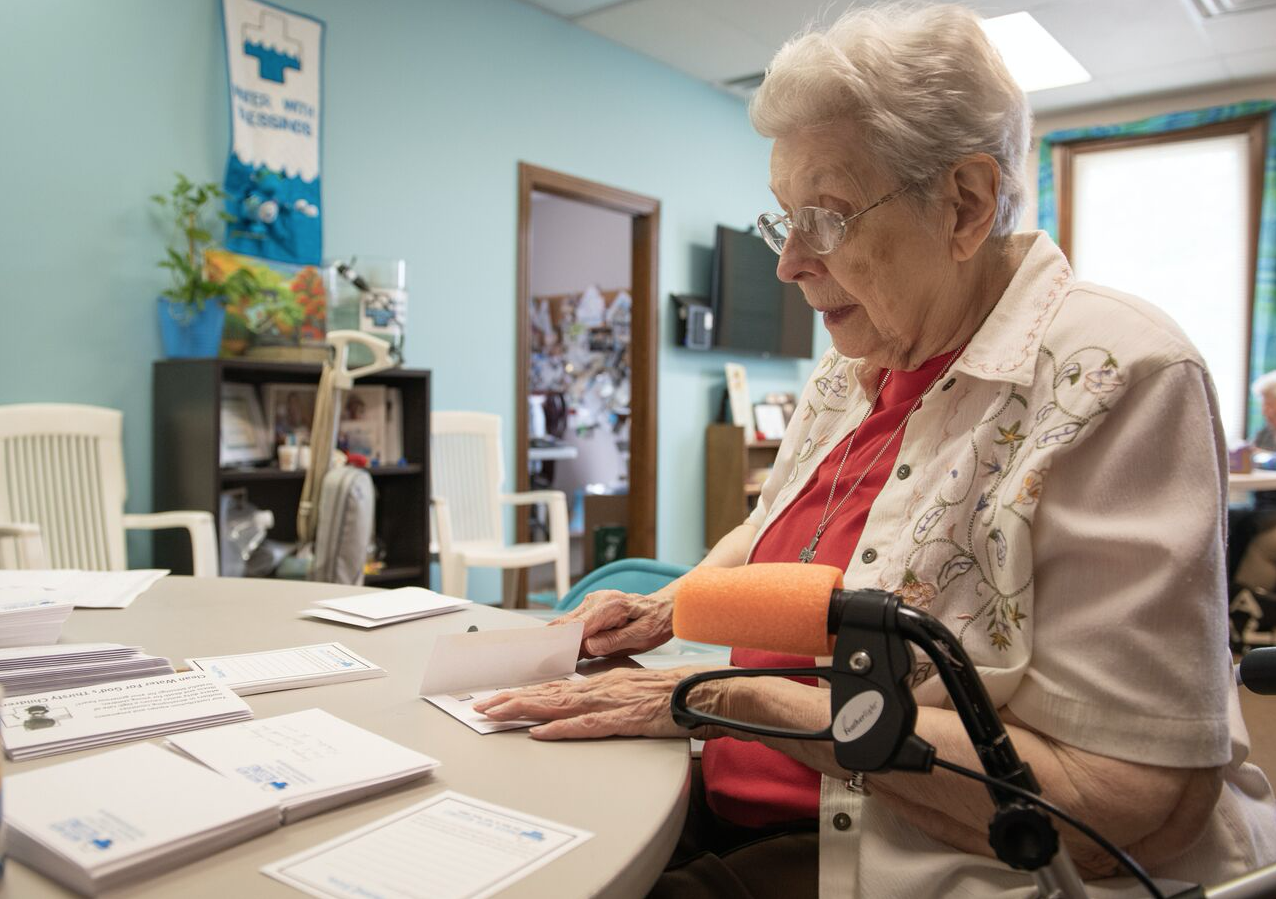

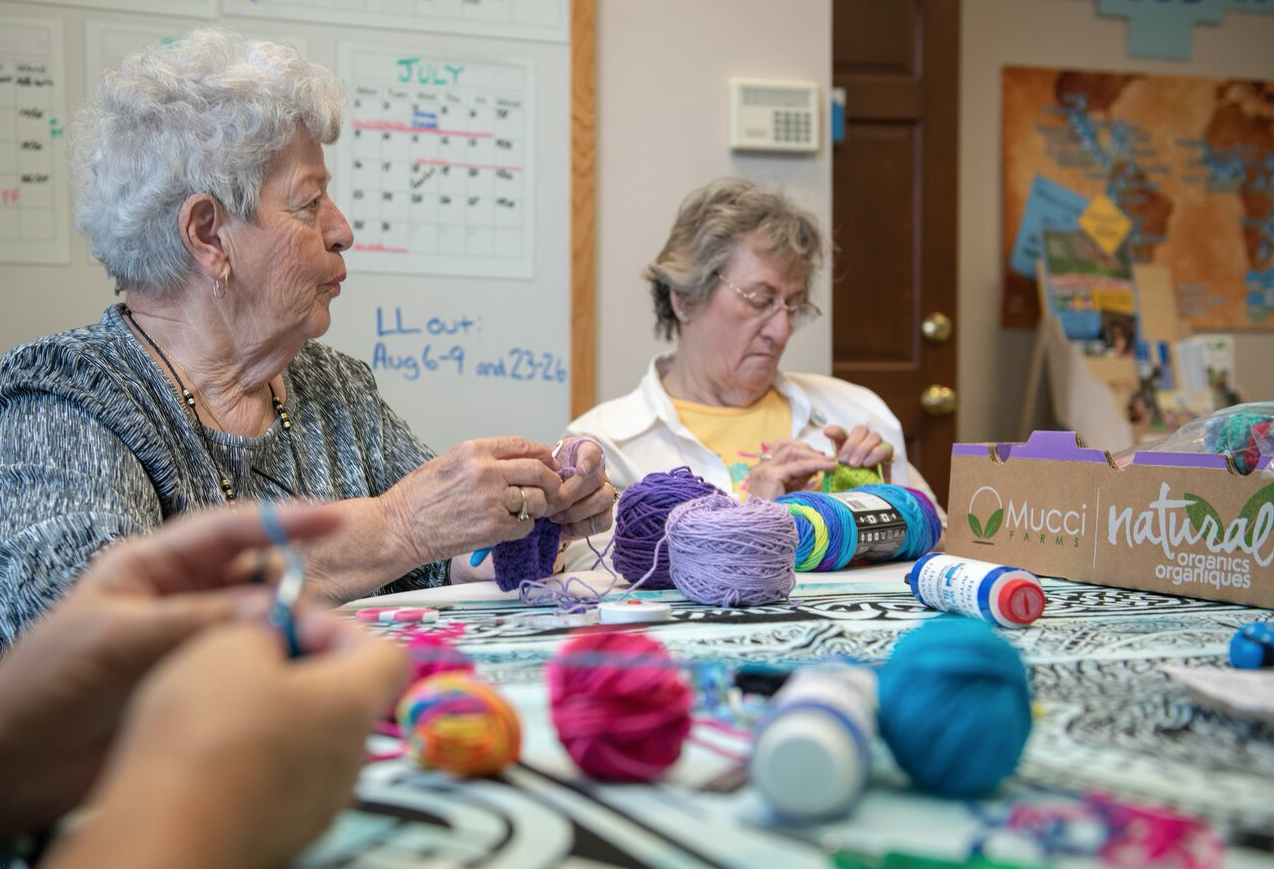
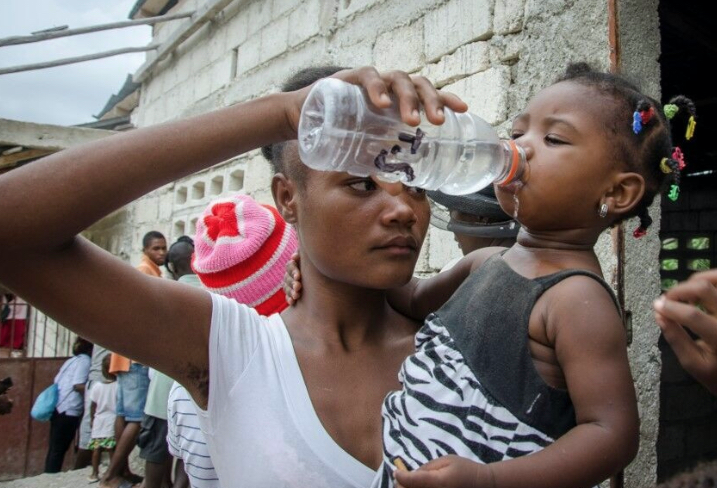
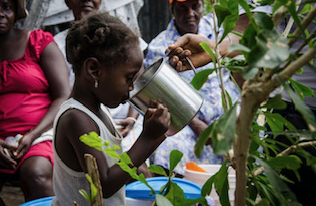
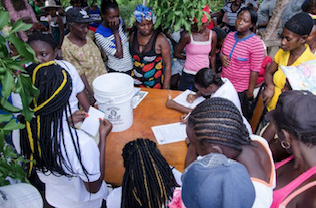
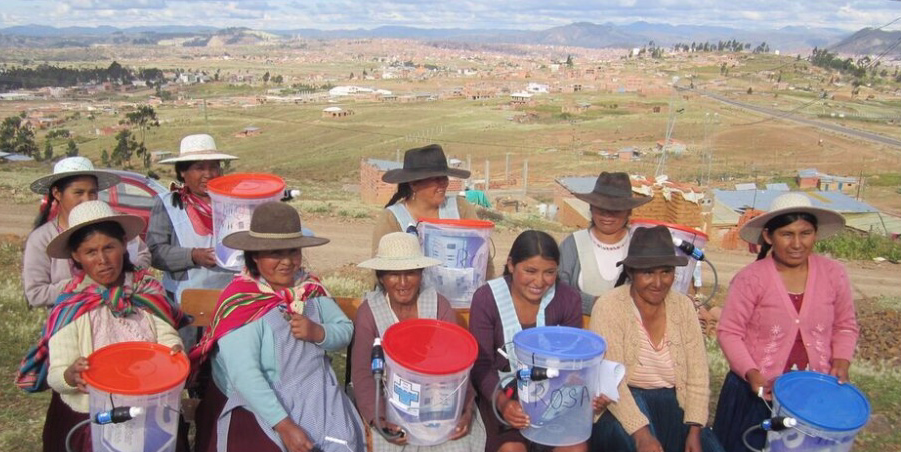



Comments 1
5